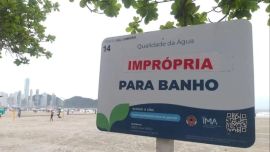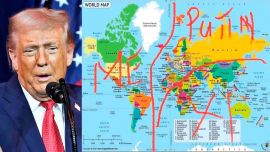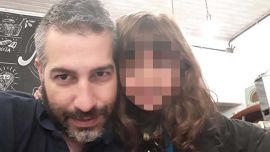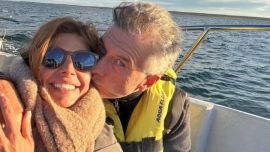The Covid-19 crisis, Supreme Court rulings and ruling coalition tensions may be seizing the headlines in Argentina at present, but outside the country, attention remains on Formosa Province.
In recent weeks, the provincial government, its police force and security forces have come under fire over human rights violations committed under the framework of the Covid-19 health emergency.
The alleged abuses have been documented in a Human Rights Watch report, which exposed the northern province’s practice of placing suspected Covid positive patients in mandatory isolation in unsanitary quarantine centres.
The abuses taking place in Formosa have garnered international attention and for some experts, they play into a wider pattern of Latin American countries violating basic human rights in their responses to Covid-19.
The Human Rights Watch report, published in March, recorded that 24,000 people had been held under mandatory quarantine in Formosa since April 2020. It documented claims that the quarantine centres are often unsanitary, overcrowded, poorly ventilated, and fail to provide basic and fundamental healthcare.
“Our research shows that the Formosa government has violated basic rights in its response to Covid-19,” said José Miguel Vivanco, Americas Director at Human Rights Watch.
He also noted that once isolated, citizens were placed with others arbitrarily, with no attention given to their date of exposure to the virus, or whether or not they had tested positive.
The New-York based NGO, however, is not the only international actor turning toward Formosa. In response to the news coming out of the province and numerous complaints, the United Nations tasked representatives with assessing the situation back in April, though they could only conduct their research virtually.
And just two weeks ago, the Inter-American Commission on Human Rights issued a resolution regarding the health of seven pregnant indigenous women from the Wichi community, who said they had gone into hiding amid fears they would be separated from their babies under special Covid-19 protocols.
Opposition lawmakers in Argentina have sought in recent months to draw attention to the region, which has been ruled by Governor Gildo Insfrán since 1995. Prominent members of the Juntos por el Cambio coalition have alleged Formosa is run like something akin to a feudal state, with corruption and cronyism rife.
Concerns over the provincial government’s recent actions beyond the isolation centres. In addition to the unsafe and abusive conditions facing those in Formosa Province, “the authorities in Formosa have also limited journalists’ ability to report about the situation in the province and allegedly used excessive force against people who protested the Covid-19 regulations,” Vivanco told the Times.
Preventing the free press from documenting activities in the region suggests a larger issue of government overreach, limiting checks on government actions and prohibiting transparency.
Vivanco also expressed concern about the national government’s response to the alleged abuses, saying it had “so far failed to speak up decisively on the human rights situation in Formosa.”
While acknowledging that the provincial government has taken steps to improve the situation, including shutting down the largest isolation centre, Vivanco maintained that abuses persist and called on Argentina and the United Nations to take a firm stance and prioritise human rights.
Balancing health concerns and civil liberties
The events in Formosa also speak to a wider trend of governance issues. Human rights abuses during the pandemic have arisen around the world, as governments have had to balance growing health concerns with the guarantee of civil liberties.
“The response to the pandemic should always respect human rights and the rule of law,” Vivanco considers. “The exercise of certain rights, such as freedom of movement, can be temporarily restricted, but only as long as the restrictions are proportionate and necessary to prevent the spread of Covid-19.”
Latin American countries have faced numerous challenges in trying to manage the pandemic. While the HRW team noted that Formosa’s preventative actions overstepped the boundaries of civil liberties, other governments had also threatened the wellbeing of their citizens.
“Responses that ignore the risks of the pandemic, such as those promoted by Brazilian President Jair Bolsonaro, put people’s health in danger and violate basic rights,” said Vicanco.
According to Amnesty International, many countries throughout the region have used the pandemic as an excuse to justify excessive force or mandatory detention. In 2020, arbitrary detention was observed in the Dominican Republic, Guatemala, Mexico, Nicaragua and Venezuela, according to the NGO.
“El Salvador’s President, Nayib Bukele, used the pandemic as an excuse to consolidate his power,” Vivanco agrees. “Bukele established a repressive nationwide lockdown, enforced by security forces, which resulted in thousands of arbitrary detentions in overcrowded and unsanitary ‘containment centres’ at the beginning of the pandemic.”
“In Nicaragua,” he added, “the Ortega-Murillo dictatorship fired doctors who criticised the government’s mismanagement of the pandemic and failed to promptly implement health expert’s recommendations.”
Meanwhile in Venezuela, according to human rights experts, “security forces and authorities used measures to curb the spread of Covid-19 as an excuse to crack down on dissenting voices, including journalists, healthcare workers, human rights lawyers, and political opponents, and intensify their control over the population.”
Latin America’s governments are facing an unprecedented challenge – and they must manage their virus containment policies with the continued necessity for human rights and civil liberties.


























Comments